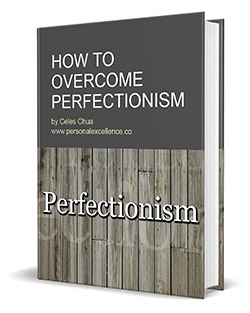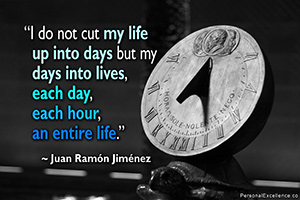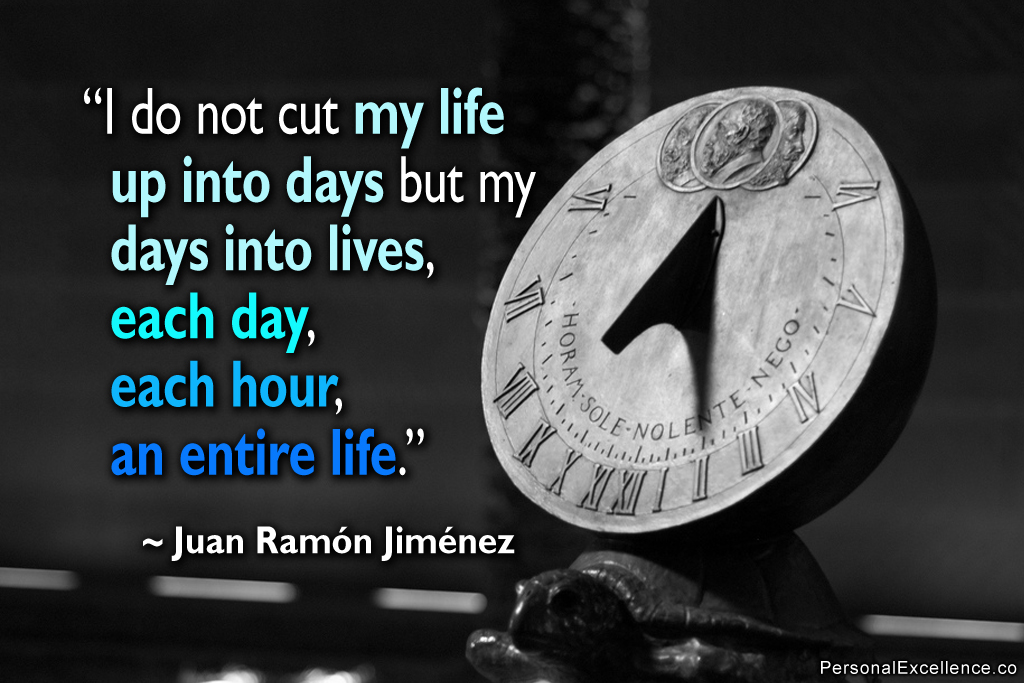
This is part 2 of my 3-part series on perfectionism: 10 signs of a perfectionist, the negative effects of perfectionism, and how to overcome them.
- Part 1: 10 Signs You Are a Perfectionist
- Part 2: 6 Negative Effects of Perfectionism
- Part 3: How To Overcome Perfectionism: Your Complete Guide

“Perfectionists are their own devils.” — Jack Kirby
“Perfectionists vary in their behaviors: some strive to conceal their imperfections; others attempt to project an image of perfection.” — Flett, York University
On the surface, a perfectionist’s life seems perfect. You are constantly overachieving and exceeding expectations in everything you do. People are amazed by what you accomplish, and the quality of your output is second to none.
Yet perfectionism has its negative effects as I share below.
Issue #1: Procrastination

(Image: Ralf Appelt)
While it may seem paradoxical, perfectionists, in their quest to achieve perfection, have a tendency to procrastinate.
Firstly, perfectionists have very high expectations of what needs to be done, which creates stress and anxiety. While a regular person may have a two-to-three-item checklist, a perfectionist has a 20-item checklist and sees a whole list of things that needs to be fixed. They want to do things perfectly and don’t want any mistakes. The stress of trying to get everything right overwhelms them and they put things off.
Secondly, perfectionists often require perfect conditions before working on something, due to their grand vision of their goal. For example, a video content creator may want a high-end DSLR, a high-end lavalier mic, and the best video editing software before starting his video channel, rather than using what he has first and improving from there. Not wanting to settle for less, they procrastinate, waiting for perfect conditions before they start.
Yet while they’re procrastinating on their goal, they continue to think about it, adding stress and weight to their mind. At the end of the day, the perfectionist is only fooling themselves. Perfectionism that leads to procrastination is a trap because nothing ever gets done.
Issue #2: Skewed view of reality

(Image: r0b0tsrfun)
Secondly, perfectionists have a skewed view of reality. They have an extreme view of how things should be, due to their incredibly high expectations. They think that everything is important and every detail needs to be perfect. In the end they miss the big picture and spend excessive time tweaking little things to no effect.
This was very true for me. In part 1, I mentioned that I pick up details readily as a highly sensitive person. While this helps me spot errors easily, as a perfectionist, I didn’t know when to stop. I would fix everything endlessly, past the point of diminishing returns.
For example, I edit my podcast episodes on my podcast show, The Personal Excellence Podcast. In the past I would spend a long time, often hours and days, removing mouth “clicks,” pauses, filler words, and fumbles. In my mind, they were unwanted sounds and having them would ruin the episode.
Yet when I listened to top-rated podcasts by others, I was surprised to hear these unwanted sounds in each episode, along with long digressions! But they didn’t prevent me from getting value from the episodes. If you think about it, they are things you hear in a regular conversation. While I had initially thought that they were critical errors that would make a podcast a disaster, they aren’t, as long as not in excess. For the immense amount of time I spent editing them out, I could have created new podcast episodes that would have helped more people.
As a perfectionist, we may think that everything is important and must be perfect. Yet this may not be true in reality. While a perfectionist may think that a piece of work must satisfy Criteria A-Z to be considered “complete,” maybe what really matters are Criteria A and B, and forgoing the less important details doesn’t make a difference at the end of the day.
So as we try to perfect every little detail, we miss the big picture. We spend too much time on unimportant things and forgo other tasks we could have done if we had just moved on. This leads to lower productivity and time wasted.
Issue #3: Deep unhappiness

(Image: Mariela BM)
Due to incredibly high expectations, perfectionists experience deep unhappiness as they are constantly unhappy with themselves and their work. They constantly feel that they fall short of their vision and beat themselves up over it.
I used to experience deep self-reproachment whenever I failed to meet my personal standards in work or life. Whenever something went wrong, I would beat myself up and think, I’m not good enough, I’m a lousy person, I’m a failure, or I hate myself. I also felt bad when I saw all the things I wanted to do but hadn’t completed yet, and would push myself to work harder.
It’s the same for top performers in the world. Lady Gaga, pop singer and winner of 13 Grammy Awards, experiences bouts of unhappiness with her work, due to her perfectionist tendencies. She says, “I am perpetually unhappy with what I create. Even though I might tell you that [my song] ‘Edge Of Glory’ is a pop masterpiece, when it’s all said and finished there will be things I dread, and every time I listen to it I’ll hear them.”
Her obsession with perfection gives her anxiety as she’s constantly worried that her shows won’t go well.[1] She says, “I’m very bossy. I don’t move on. I vomit in the bathroom before every show. I can scream my head off if I see one light fixture out. I’m very detailed — every minute of the show has got to be perfect.”
Michael Jackson, pop legend and known perfectionist, once said, “I’m never pleased with anything, I’m a perfectionist, it’s part of who I am.” Akon, a record producer who worked with Jackson before, says, “He was never satisfied. Like, we might have passed up ideas that I know for a fact were smashes. He’d be like, ‘Nah, nah — we got to come up with something better.’ [But] we can never do better ’cause his expectation was so high. It was almost to a point where we would have to get a record and I would believe in it and just put it out, ’cause it would never come out ’cause he always believed we could do better.”[2]

Michael Jackson said in a 1993 interview with Oprah Winfrey that he was a perfectionist and was never pleased with any of his work.
It is suspected that Jackson’s extreme perfectionism contributed to his personal struggles and depression. He died in 2009 from over-medication that led to a cardiac arrest.
And then there is John Lennon from Beatles, one of the world’s most famous rock bands, who said that he is “dissatisfied with every record the Beatles ever [bleep]ing made.” He said, “There ain’t one of them I wouldn’t remake… including all the Beatles records and all my individual ones.”[3]
Of course, the inner struggles of a perfectionist vary from person to person. Some experience brief feelings of dissatisfaction while some feel deep pain and regret over seemingly small mistakes. The point is that while a perfectionist seems well put together, they are constantly very critical of themselves. They often think that they don’t match their expectations and they’re not good enough, and this leads to a persistent feeling of lack, guilt, regret, and unhappiness.
Without keeping this in check, perfectionists can become depressed. In extreme cases, extreme perfectionism combined with low self-worth and a firm refusal to seek help may lead to a decline in mental and physical health (see next point).
Issue #4: Neglecting your health

(Image: markdrasutis)
Many perfectionists often neglect their health in pursuit of their goals.
I used to be like this, though I’ve learned to put health as a priority. I used to, in the quest to perfect my work, forgo my sleep and work really late until 6-7am in the morning, sometimes later.
It’s not that I didn’t care about my health, but that I felt that my life mission and deadlines were more important than sleep. So if I had a training on Saturday, I’d work till the wee hours through the week as I prepared my materials. Then, I’d work till the wee hours through the weekend as I perfected my recordings and sent them to my participants.
But this was not sustainable. With my endless workload, I’d sleep late for pretty much all days of the year. Over time, I realized this was very unhealthy and I needed to prioritize my health.
Many studies point to poorer health among perfectionists compared to others:
- In a 2010 study by the University of Coimbra (Portugal), it was found that socially prescribed perfectionists had more difficulty falling and staying asleep than other students. One reason is that they’re worried about failing and being labeled as failures. Insufficient sleep is known to raise the risk of diabetes, some cancers, heart attacks, stroke, and early Alzheimer’s.[4][5]
- In a study of 383 people from Sweden, it was found that perfectionism correlated with the degree of sleep problem. In a second study of 70 patients with persistent insomnia from a sleep disorders clinic, it was found that these patients have significantly higher scores than normal on perfectionism. It is hypothesized that perfectionism may serve as a predisposing factor for the development of persistent insomnia.[6]
- In a study of 100 heart attack patients, perfectionists were found to recover more slowly and were at higher risk of further cardiac problems. Three factors were identified that slowed down their recovery: (1) stress from the pressure that the perfectionists put on themselves; (2) chronic negative emotions from never feeling joy in their achievements; and (3) lack of social support.[7]
- This is backed up by a Dutch study published in the journal Circulation in 2010, involving more than 6,000 heart disease patients. Perfectionists with a negative outlook were 3X more likely to experience more heart problems than those with positive personalities.
- A 2007 study from the University of Auckland suggests that perfectionists are more prone to developing irritable bowel syndrome (IBS) after a bout of food poisoning. The researchers followed up with 620 people who had an acute episode of food poisoning and found those who developed IBS were more likely to have perfectionist tendencies, such as carrying on regardless until they were forced to rest.[8]
(More on the negative effects of perfectionism on physical health here.)
Does that mean that a perfectionist automatically has bad health? No. It means that the way perfectionists often disregard their health in the name of work and perfection causes their health to decline. Their constant worrying about achieving a certain standard also serves as a bedrock for conditions like insomnia, heart disease, and headache.
Some perfectionists turn to emotional eating or drinking to quell their unhappiness.[9][10] In the end, a perfectionist, through self-neglect, causes their health to decline.
Issue #5: Difficulty letting go

(Image: Benjamin Chan)
Perfectionists have difficulty letting go — be it their work, the mistakes they made, or imperfections.
If you’re a perfectionist, you have probably experienced the following:
- You are afraid of delegating because you’re worried that people will mess up your work.
- You can’t stop thinking about work because you are afraid everything will crash when you do.
- You spend a lot of time correcting tiny mistakes that don’t make a difference.
- You keep thinking about past “failures” even though they have long passed.
This refusal to let go makes you carry the weight of the world on your shoulders as you carry more responsibilities in life. In the end, you feel extremely weighed down by every little thing, even though you have no reason to feel this way.
Issue #6: Strained relationships

(Image: Wavebreakmedia)
Lastly, perfectionism often strains and damages relationships.
As a perfectionist, you have very harsh standards of yourself and these expectations often spill over to your relationships. Perhaps you expect your partner and family members to uphold the same standards and get upset when they don’t live up to them. An example would be a parent expecting their child to score 100 marks on their tests all the time, or a wife/husband blaming their partner for not doing household duties the way they want, as per their vision.
Perfectionists also put their work performance at the highest priority, to the point that they neglect their relationships. They often spend a large amount of time at work, leaving their relationships on the back burner.
Some perfectionists bring their work struggles into their relationships, lashing out at loved ones when things don’t go well. Because perfectionists associate their worth with their performance, their family and friends get negatively affected when work doesn’t go their way, which is often all the time due to their impossibly high standards.
Clearly, such pressure weighs down on your relationships and makes your loved ones feel pressured and unhappy. In the end, not only does perfectionism hollow you out, but you also drain your relationships and push your loved ones away.
How About You?
Can you relate to any of the above? What negative effects do you experience as a perfectionist?
Despite these negative effects, it is possible to make the best out of perfectionism and manage it such that it doesn’t compromise your health or your life. Proceed to Part 3: How To Overcome Perfectionism: Your Complete Guide
This is part 2 of my 3-part series on perfectionism: 10 signs of a perfectionist, the negative effects of perfectionism, and how to overcome them.










 Thanks for reading. If you like my free articles, join my private email list and get my latest updates and articles sent right to your inbox.
Thanks for reading. If you like my free articles, join my private email list and get my latest updates and articles sent right to your inbox.